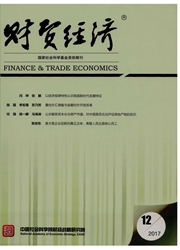

 中文摘要:
中文摘要:
近年来,“二代”现象愈演愈烈,反映了我国社会各阶层日趋固化的现实。而刻画社会固化的重要工具就是代际收入流动性及其传递机制。研究结果发现,虽然城镇居民代际收入流动性并不高,且存在明显性别差异,但工作传递在收入代际传递中作用非常明显。性别差异主要表现为两点:其一,父母向子女传递收入的程度不同;其二,父母向子女传递收入的方式存在细节上的差异。实证检验证实了代际收入传递的三种机制:直接传递,即父母将收入直接向子女转移;通过人力资本传递,即父母通过对子女进行教育等人力资本投资,提高子女能力,从而提高子女收入;通过工作选择传递,即父母通过影响子女工作选择影响子女收入。
 英文摘要:
英文摘要:
The "second generation" phenomenon shows that our society has been becoming more solidified nowadays. The inter-generational income mobility is an important tool to describe the social steady state. The empirical results show that the inter-generational income mobility of urban residents is low, there are significant gender differences, and work transfer is important on income transmission between generations. Gender differences owns two characteristics: the inter-generational income mobility is different, and the specific elements affecting the children income are different. Generally, there are three kinds of mechanisms on inter-generational income transmission: parents transfer income to their children directly; parents improve their children ability by human capital investment; parents help their children enter high-income sectors, industry or post, get a higher income.
 同期刊论文项目
同期刊论文项目
 同项目期刊论文
同项目期刊论文
 期刊信息
期刊信息
